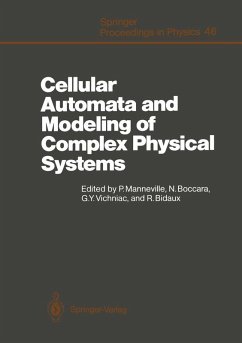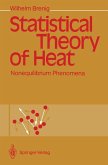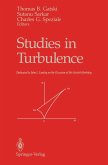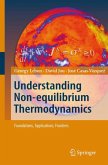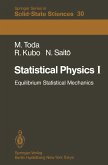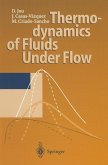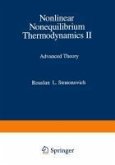Cellular automata are fully discrete dynamical systems with dynamical variables defined at the nodes of a lattice and taking values in a finite set. Application of a local transition rule at each lattice site generates the dynamics. The interpretation of systems with a large number of degrees of freedom in terms of lattice gases has received considerable attention recently due to the many applications of this approach, e.g. for simulating fluid flows under nearly realistic conditions, for modeling complex microscopic natural phenomena such as diffusion-reaction or catalysis, and for analysis of pattern-forming systems. The discussion in this book covers aspects of cellular automata theory related to general problems of information theory and statistical physics, lattice gas theory, direct applications, problems arising in the modeling of microscopic physical processes, complex macroscopic behavior (mostly in connection with turbulence), and the design of special-purpose computers.
Dieser Download kann aus rechtlichen Gründen nur mit Rechnungsadresse in A, B, BG, CY, CZ, D, DK, EW, E, FIN, F, GR, HR, H, IRL, I, LT, L, LR, M, NL, PL, P, R, S, SLO, SK ausgeliefert werden.
Hinweis: Dieser Artikel kann nur an eine deutsche Lieferadresse ausgeliefert werden.

